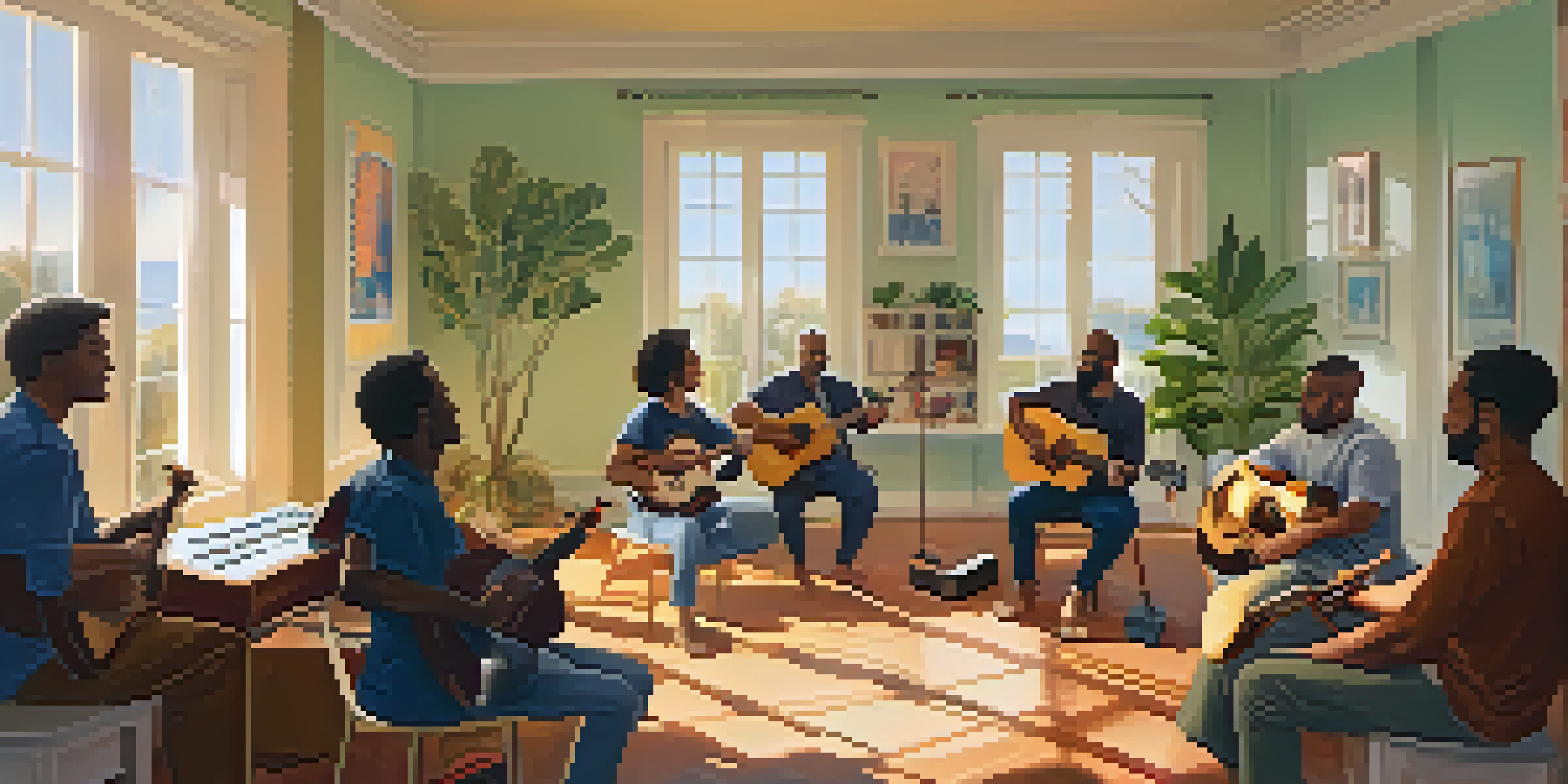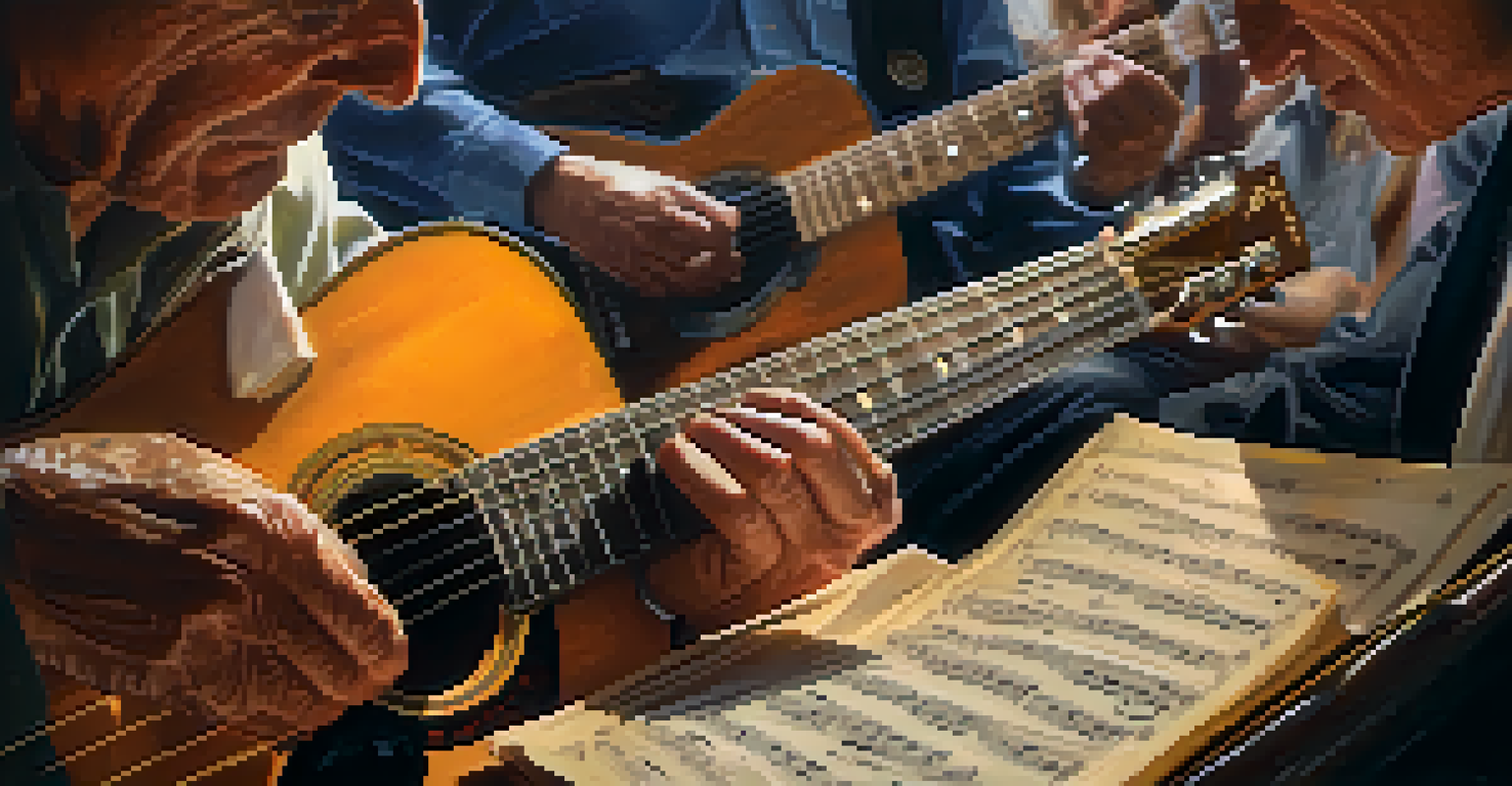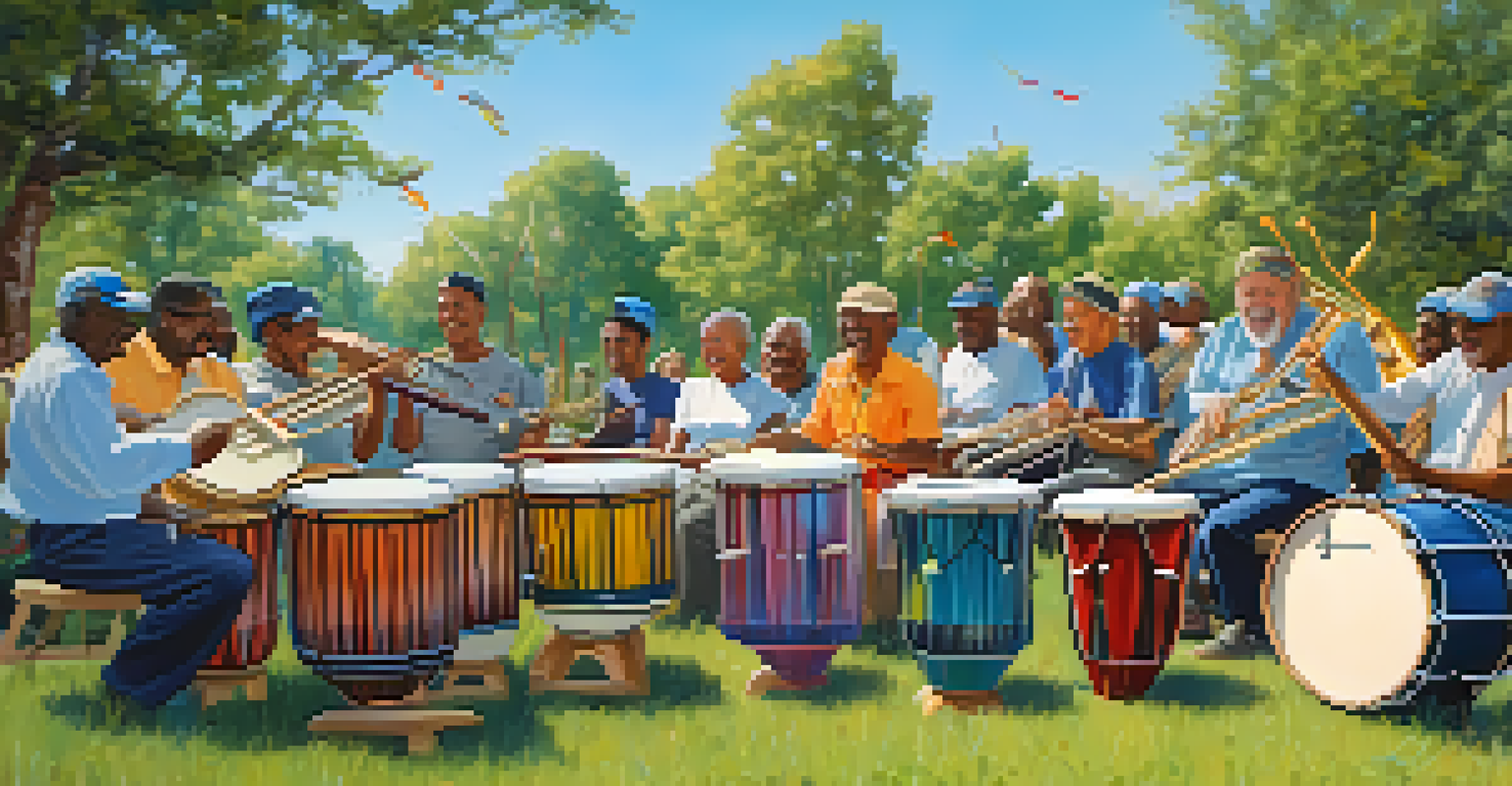The Benefits of Music Therapy for Veterans with PTSD

Understanding PTSD and Its Impact on Veterans
Post-Traumatic Stress Disorder (PTSD) is a mental health condition triggered by traumatic events, often seen in veterans. It can manifest through flashbacks, severe anxiety, and uncontrollable thoughts about the event. This can significantly disrupt daily life, affecting relationships, work, and overall well-being.
Music can change the world because it can change people.
For veterans, the experiences faced during service can lead to profound emotional scars. Many struggle to reintegrate into civilian life due to these invisible wounds, feeling isolated and misunderstood. Understanding PTSD is crucial to finding effective treatment options that truly resonate with those affected.
As we delve into potential therapies, it's essential to consider holistic approaches that address both mind and body. One such promising avenue is music therapy, which harnesses the power of music to facilitate healing and emotional expression.
What is Music Therapy?
Music therapy is a clinical and evidence-based practice that uses music interventions to achieve specific therapeutic goals. Qualified music therapists tailor sessions to meet individual needs, employing techniques such as songwriting, listening, and improvisation. This creative outlet can be especially beneficial for veterans struggling to articulate their feelings.

Unlike traditional therapy, which often relies heavily on verbal communication, music therapy can engage individuals on a different level. It allows for emotional expression without the pressure of having to find the right words. For many veterans, this can be a liberating experience, paving the way for deeper connections.
PTSD's Emotional Impact on Veterans
Veterans often face profound emotional challenges due to PTSD, making it crucial to understand their unique experiences for effective treatment.
Moreover, music therapy can be conducted in both individual and group settings, fostering a sense of community among participants. This social aspect can help combat feelings of isolation, making it an appealing choice for veterans looking for support.
Emotional Expression Through Music
One of the most significant benefits of music therapy for veterans with PTSD is its ability to facilitate emotional expression. Music can evoke feelings that might be difficult to verbalize, providing an alternative channel for veterans to process their experiences. This can lead to cathartic moments that are crucial for healing.
The greatest gift of music is that it connects people.
For instance, creating music or engaging in rhythm activities can help veterans tap into emotions they may have suppressed for years. Whether it's joy, sadness, or anger, music provides a safe space for these feelings to surface. This process can be incredibly therapeutic, fostering a sense of relief and understanding.
Additionally, sharing music with others can enhance feelings of connection and empathy. Veterans may find solace in knowing they are not alone in their struggles, as they relate to the emotions expressed by their peers through music.
Reducing Anxiety and Improving Mood
Music has a profound impact on our emotions, and music therapy can help reduce anxiety and improve mood for veterans dealing with PTSD. Studies have shown that listening to soothing music can lower cortisol levels, the hormone associated with stress. This physiological response can lead to a more relaxed state of mind.
Engaging in music therapy activities, such as drumming or singing, can also release endorphins, the body's natural feel-good chemicals. This boost can elevate mood and provide a sense of joy, which is often elusive for those living with PTSD. The rhythmic nature of music can create a calming effect that helps veterans manage their symptoms more effectively.
Music Therapy as a Healing Tool
Music therapy offers a creative outlet for veterans, allowing for emotional expression and connection in a supportive environment.
Moreover, incorporating music into therapeutic practices can serve as a distraction from intrusive thoughts. By focusing on melodies and rhythms, veterans can momentarily escape their worries, fostering a sense of peace and contentment.
Building Social Connections and Community
Music therapy not only promotes individual healing but also encourages social connections among veterans. Group sessions can create a supportive environment where participants share their experiences and feelings, fostering camaraderie. This sense of community can be invaluable for those who often feel isolated due to their PTSD.
As veterans engage in collaborative music-making, they build relationships based on shared understanding and empathy. These interactions can help break down barriers and reduce feelings of loneliness, which are common among those with PTSD. The bonds formed in these settings can lead to lasting friendships and a stronger support network.
Additionally, being part of a group can instill a sense of belonging, which is crucial for mental health. Music therapy can transform the often lonely journey of recovery into a shared experience, encouraging veterans to support each other through their healing processes.
Enhancing Cognitive Function and Memory
Another significant advantage of music therapy is its potential to enhance cognitive function and memory. For veterans with PTSD, cognitive challenges such as difficulty concentrating or remembering tasks can hinder daily life. Music therapy can provide stimuli that help improve these cognitive skills in a fun and engaging way.
Listening to familiar songs or participating in music-related activities can stimulate memory recall. This is often referred to as the 'reminiscence effect,' where music evokes memories of past experiences. For veterans, this can be a powerful tool for processing their history and reconnecting with their identity.
Building Community Through Music
Group music therapy sessions foster camaraderie and social connections among veterans, reducing feelings of isolation and loneliness.
Moreover, by incorporating musical elements into cognitive exercises, therapists can create a more enjoyable learning environment. This can motivate veterans to engage actively in their therapy, making cognitive improvements feel less daunting and more achievable.
Finding Qualified Music Therapists for Veterans
When considering music therapy, finding a qualified music therapist is essential. Look for professionals who are board-certified and have experience working with veterans and PTSD. They should be capable of creating personalized plans that align with each veteran's unique needs and goals.
Many organizations, including the American Music Therapy Association, provide resources to help connect veterans with certified therapists. Engaging with local veterans' organizations or healthcare facilities can also lead to valuable referrals. It's crucial to ensure that the therapist understands the specific challenges faced by veterans with PTSD.

Additionally, veterans should feel comfortable and safe with their chosen therapist. Building trust is key to successful therapy, and finding someone who resonates with the individual's experiences can significantly enhance the healing process.